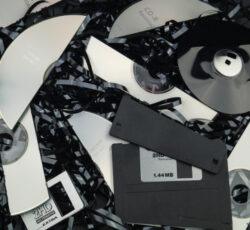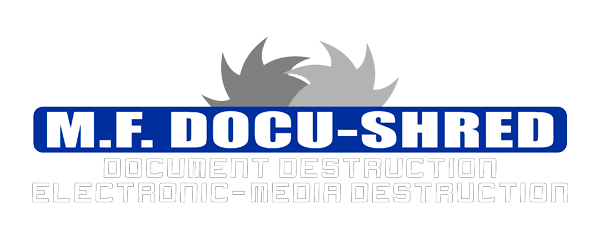 In today’s digital age, protecting sensitive and confidential information is of utmost importance. While much emphasis is placed on digital security, it’s essential not to overlook the risks associated with physical media. Shredding sensitive media is a secure and effective way to prevent unauthorized access to information. In this blog post, we will discuss various types of media that should be shredded to ensure data protection.
In today’s digital age, protecting sensitive and confidential information is of utmost importance. While much emphasis is placed on digital security, it’s essential not to overlook the risks associated with physical media. Shredding sensitive media is a secure and effective way to prevent unauthorized access to information. In this blog post, we will discuss various types of media that should be shredded to ensure data protection.
Paper Documents
Paper documents, such as financial records, invoices, contracts, and personal information, should be shredded to prevent identity theft and unauthorized access. Shredded paper documents ensure that sensitive information is destroyed and cannot be reconstructed. It’s important to shred not only outdated and obsolete documents but also any unwanted or duplicate papers that contain personal or confidential information.
Credit Cards and Debit Cards
Expired or canceled credit cards and debit cards should not be thrown in the trash but should be shredded to prevent fraud and unauthorized use. Identity thieves can easily retrieve discarded cards and use them for malicious purposes. Shredding these cards ensures that the information on the cards, including the card number and the cardholder’s name, is completely destroyed.
Optical Media
Optical media, including CDs, DVDs, and Blu-Ray discs, can contain sensitive information that should be properly destroyed. These media types are often used to store personal data, financial records, or backups. Simply throwing them in the trash or recycling bin is not enough, as the data can still be recoverable. Shredding optical media ensures that the data is irretrievable and reduces the risk of unauthorized access.
USB Drives and External Hard Drives
USB drives and external hard drives are commonly used for data storage and transport. They can contain a large volume of sensitive information, including personal files, financial data, or company records. When disposing of these devices, it is crucial to ensure that the data is completely erased. Simply deleting files or formatting the drives may not be sufficient, as the data can still be recoverable. Shredding USB drives and external hard drives ensures that all data is destroyed beyond recovery.
Obsolete or Damaged Hard Drives
Obsolete or damaged hard drives from computers or other electronic devices should also be shredded to protect data security. Even if a hard drive is no longer in use or appears to be damaged, the data stored on it can still be accessible to those with the necessary knowledge and tools. Shredding hard drives ensures that sensitive data cannot be retrieved and misused.
Microfilm and Microfiche
Microfilm and microfiche were once popular media formats for storing large volumes of documents. While these formats are not as common today, they may still be utilized in certain industries, such as libraries or historical archives. Microfilm and microfiche can contain highly sensitive information, and it is essential to shred them to prevent unauthorized access.
Expired Passports and IDs
Expired passports, driver’s licenses, and other identification documents should be shredded to prevent identity theft and impersonation. These documents contain personal information, including full names, addresses, and photographs, which can be exploited if they fall into the wrong hands. Securely shredding these expired IDs ensures that the information is destroyed and cannot be used for fraudulent activities.
Sensitive Office Supplies and Printed Materials
Various office supplies and printed materials should also be shredded to protect sensitive information. This includes items such as sticky notes, labels, employee badges, visitor badges, or any materials that may contain names, addresses, passwords, or other confidential details. Simply discarding these items in the regular trash increases the risk of unauthorized access and compromise of sensitive information.
Conclusion
Shredding sensitive media is an essential practice to ensure data protection and prevent unauthorized access to confidential information. By properly disposing of paper documents, credit cards, optical media, USB drives, hard drives, microfilm, expired IDs, sensitive office supplies, and printed materials, you can minimize the risk of identity theft and fraud. It is crucial to use a secure shredding method that completely destroys the media and renders the information irretrievable. By prioritizing the shredding of sensitive media, you can take proactive measures to safeguard personal and confidential information.

